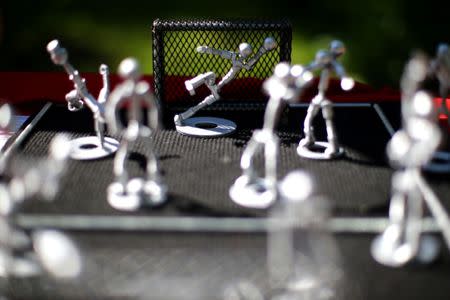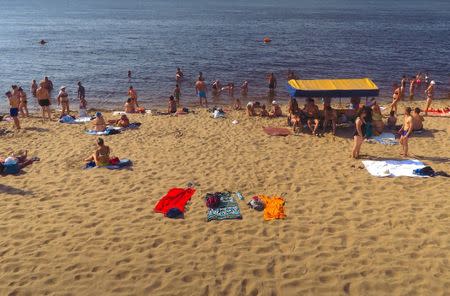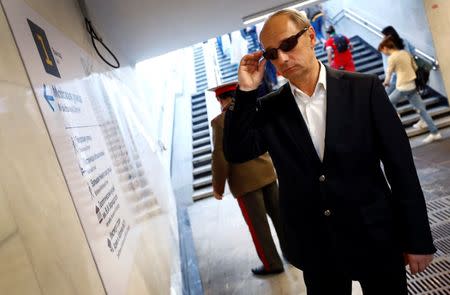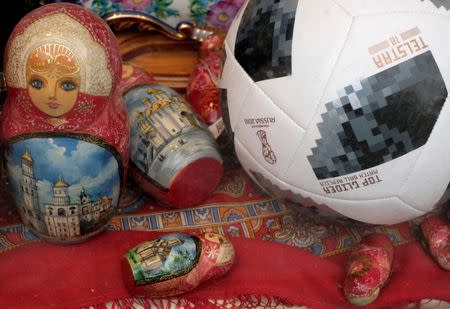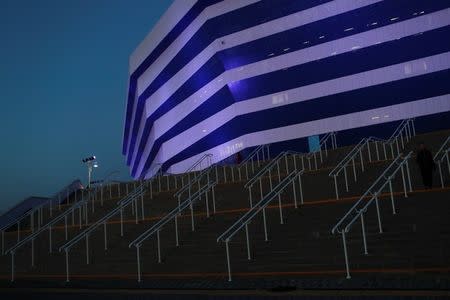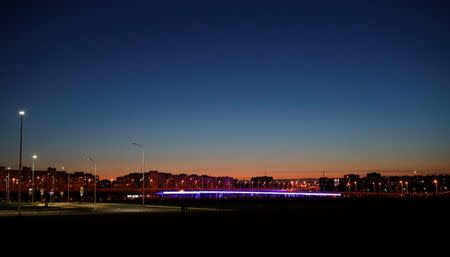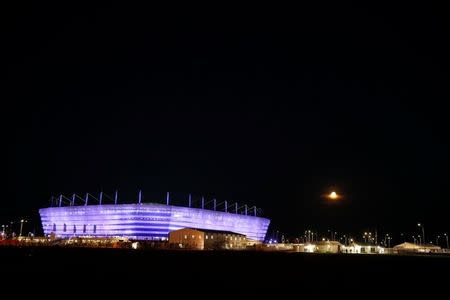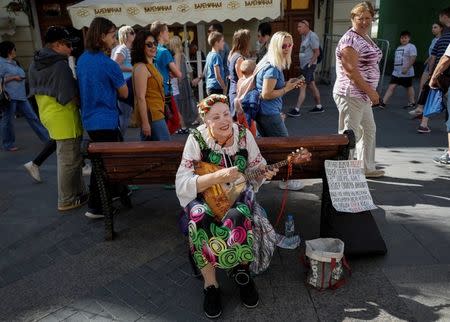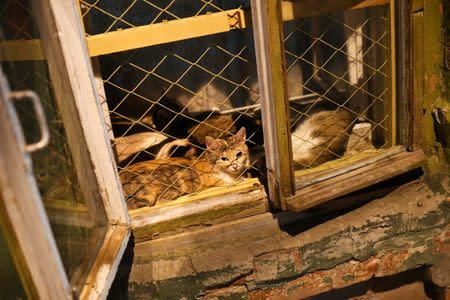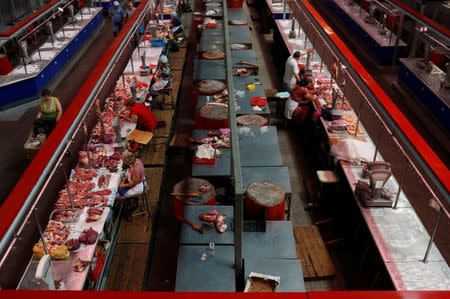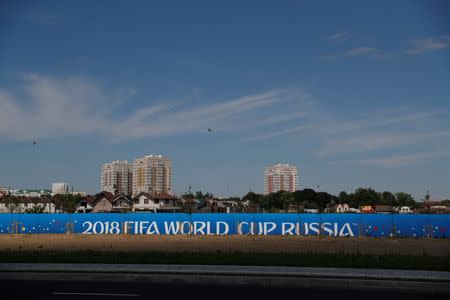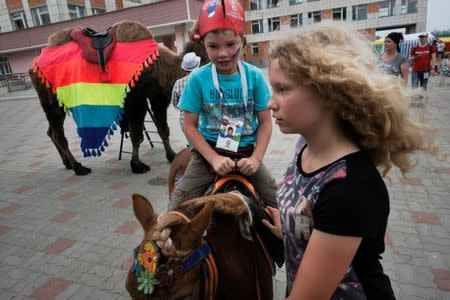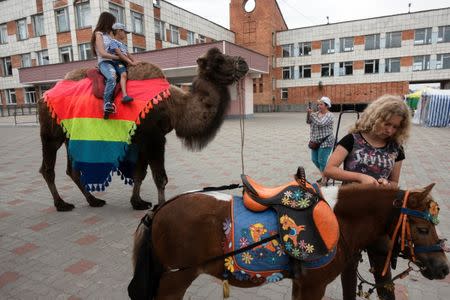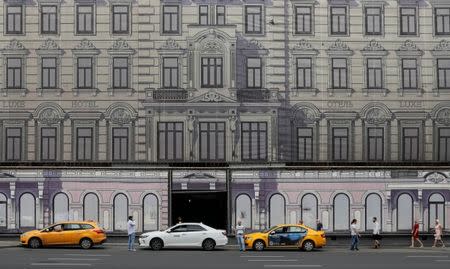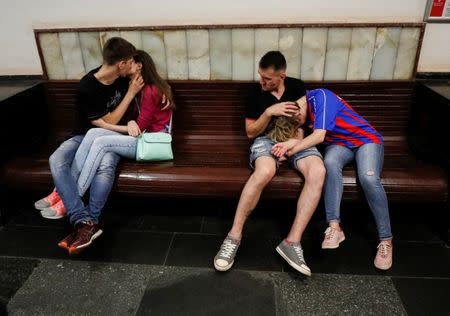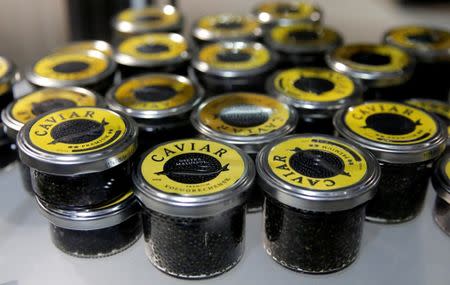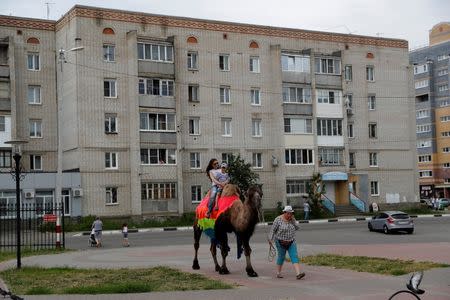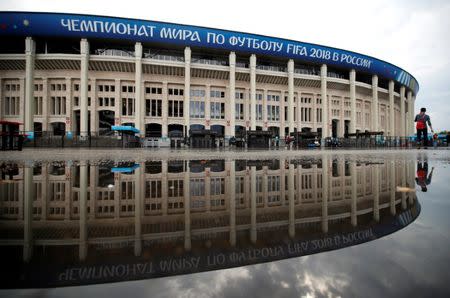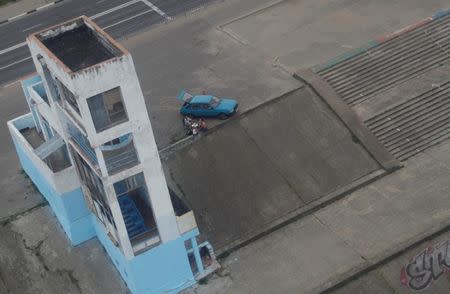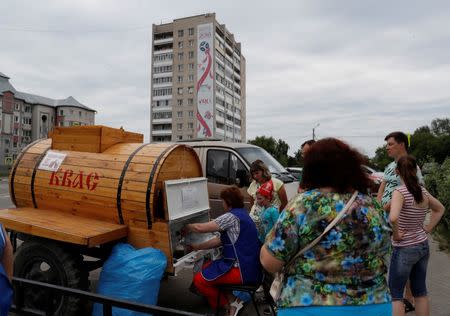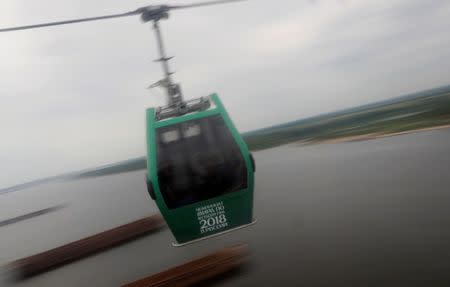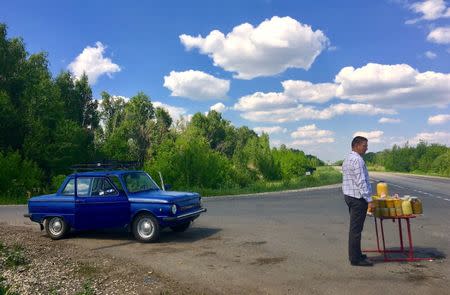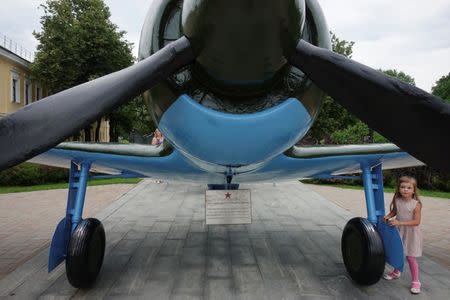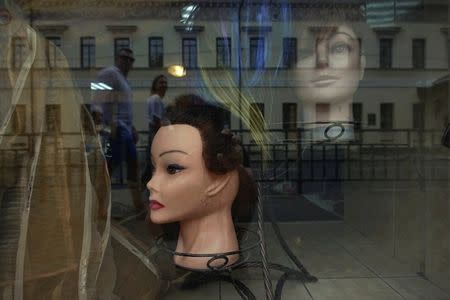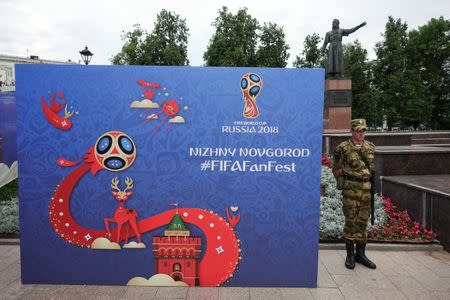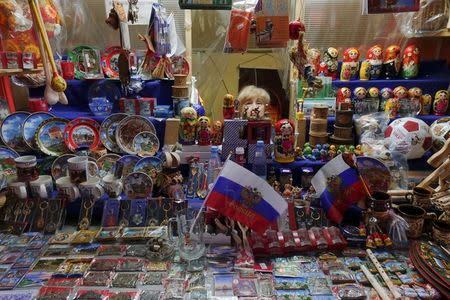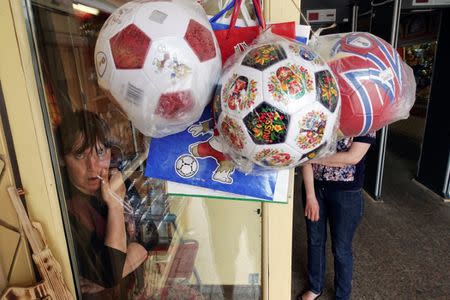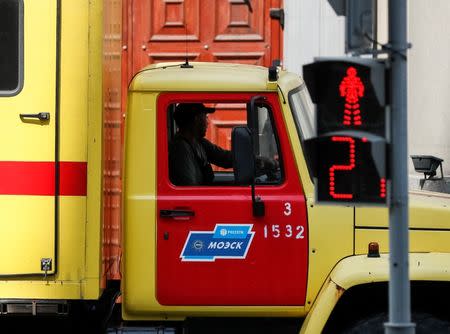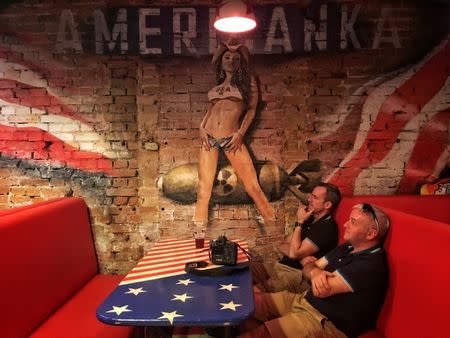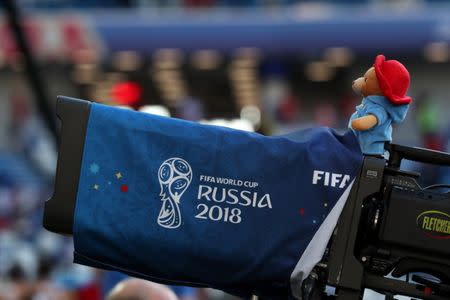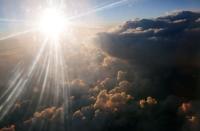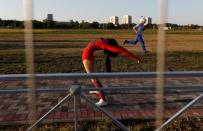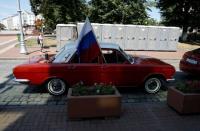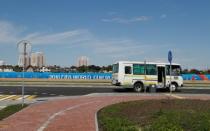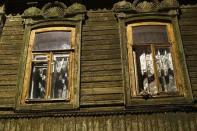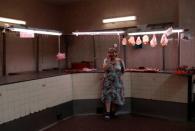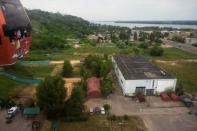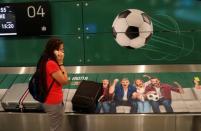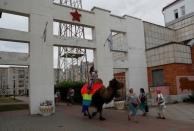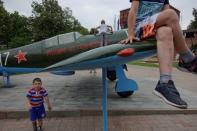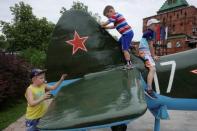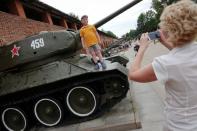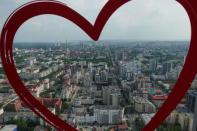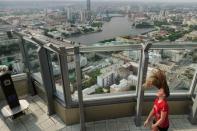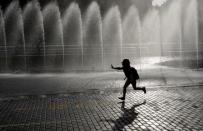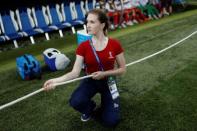Soccer: Russia puts on best face for rocking World Cup
By Andrew Cawthorne
NIZHNY NOVGOROD (Reuters) - Such was my haste in packing and ignorance of Russia that I nearly followed my wife's recommendation to throw in a woolly hat for the World Cup before setting off from Venezuela.
Thank goodness I didn't, because it would have felt mighty silly having that in higher summer temperatures beside the Volga river than those back home on the Caribbean.
It was not the only misconception that I, a Reuters reporter - and hordes of fans who had likewise never been here - had about a host nation stereotyped for cold weather and cold people.
To our collective joy, edification and more than slight embarrassment, the Russia we found was hospitable, organised, modern, bending over backwards to help us - and ready to party.
My assignment was in Nizhny Novgorod, a "closed city" during the Soviet era, I had read in advance. That reminded me of the grey images of tower-blocks and food lines that were a staple of English media coverage during the Cold War of my childhood.
Whatever its past, this city of 1.2 million people at the confluence of the Volga and Oka rivers is now open and rocking.
From the airport to the stadium, hotel and public squares, young volunteers from local language schools were eager to show their English and spare us stumbling over phrase-books for a 'Spasibo' (thank you) or 'Zdravstvuyte' (hello).
At the gorgeous new Nizhny Novgorod Stadium, whose blue-and-white hues evoke water and wind, the facilities were perfect for journalists: high-speed internet, spacious desks with a TV for replays and a great view of the pitch, and special shuttle buses to whiz us through the crowds.
On the streets, locals sang, danced and took selfies with armies of fans from Panama to South Korea. Often, conversations merrily proceeded via phone translation apps.
'FORGET WHAT YOU READ ABOUT RUSSIA'
When Russia played in a different city, the locals poured onto the streets, chanted, and packed the fan zone in scenes of exuberant patriotism that beat anything I had witnessed in previous tournaments at Brazil 2014 and South Africa 2010.
Even the feared English hooligans never materialized.
Instead, 'Three Lions' fans hung out their flags and partied courteously with Russians in cafes and boulevards, while police hung back discreetly in the side-streets, un-deployed for the trouble they had been trained to expect.
Even the food, sometimes ridiculed as stodgy and bland, was getting a thumbs-up, especially the ubiquitous Georgian cordon bleu, smoky Armenian cafes, and surprisingly affordable Siberian caviar.
"Forget everything you ever read or thought about Russia - this is absolutely brilliant! It's such a shame so many people were put off," said England fan Charlie Carline, 33, quaffing beer in the sun-kissed fan zone next to Nizhny Novgorod's 'Kremlin' castle on a hilltop overlooking the rivers.
Some of his friends, veterans of past World Cups, stayed at home for fear of a repeat of the Russian-English fan violence seen in France at the 2016 Euros or hostility due to the dire state of political relations between London and Moscow.
Photographer Lucy Nicholson, based in Los Angeles, had covered seven Olympics for Reuters but never a World Cup and was excited to be finally seeing Lionel Messi and Cristiano Ronaldo.
"One of the most striking things about the World Cup compared to the Olympics, is how male it is: the vast majority of fans, media, and obviously players are male," she said.
"Given this, it was surprising how little rowdiness I witnessed ... I found ordinary Russians, particularly women, to be invariably kind and warm ... This welcoming behaviour could have been inspired by pride in a national event or perhaps by the balmy weather, but much of it seemed spontaneous and genuine."
'CLEANEST CITY I'VE SEEN'
Nicholson's biggest challenge was travelling between multiple cities - from Kaliningrad on the Baltic Coast to Sochi on the Black Sea. She took 14 flights in 18 days on Aeroflot and Siberia Airlines, once falling asleep in a stadium pre-match due to the exhaustion.
"It was fascinating to visit parts of Russia rarely seen by tourists," Nicholson said. "Restrictions on mass gatherings were suspended for the World Cup, creating an unusual carnival-like atmosphere."
Australia-based Reuters photographer David Gray was at his fourth consecutive World Cup and in Samara throughout.
"This World Cup differs from all the others due to one main factor - my preconceived ideas of what to expect," he said, echoing the conclusion of most Cold War-era western visitors.
"Talking with Russians during this event has broadened my understanding of their extremely strong national pride. A pride I find very admirable. It has also meant the cleanest city streets I have ever seen," said Gray, for whom the sound of water-spraying machines became as routine as that of cars.
He was also impressed by Samara's UFO-like stadium.
"The chanting and singing reverberates beautifully off the circular roof, and as at all World Cups, leaves a permanent ringing in your ears for many weeks after."
Of course, there will be a reality check after the love-in with Russia. It does still snow here in other seasons, no amount of fan fun can hide some serious political problems, and critics will say President Vladimir Putin has exploited the tournament to clean an increasingly pariah image abroad.
Yet for the glorious summer of 2018, Russia put on its best World Cup face - and the world smiled back.
For a photo essay, click: https://reut.rs/2KqNQQS
(Reporting by Andrew Cawthorne; Editing by Hugh Lawson)


